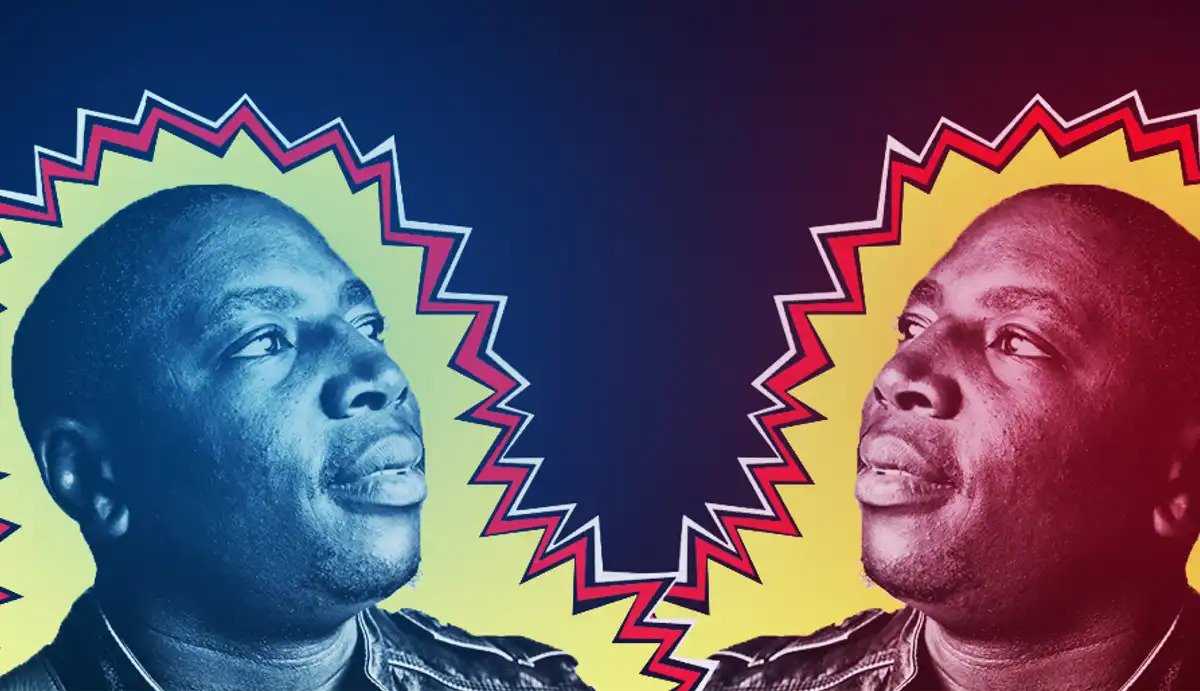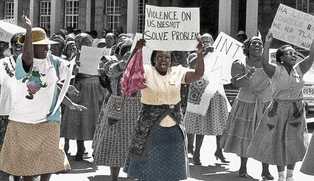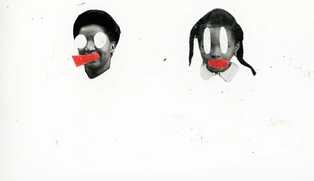Malian singer-songwriter Vieux Farka Touré is almost always introduced as the son of the late Ali Farka Touré, the legendary musician who took the world by storm with his unique blend of Malian folk music and American blues. But Vieux’s sound today is one that is uniquely his own. His second album Fondo, released in 2009, paid tribute to his father’s music, using elements of rock, Latin music and a variety of African influences. It also gave birth to a new genre that has come to define Vieux’s own inimitable sound: Desert Blues. Vieux has since produced four more studio albums and worked with an astounding number of artists from different parts of the world. At the heart of his musical project is genre blending and bending, to produce surprising and fresh sounds. Skin Deep got the chance to talk to Vieux about his work and its wider context. Here’s that conversation.
*
Skin Deep: What kind of music did you listen to as a child? Vieux Farka Touré: I grew up in Niafunke in the North of Mali, up near Timbuktu. There was always music around me, people playing their guitars, ngonis, njarkas, percussion. I was always hearing live music and learning with my cousin Afel Bocoum and others like him that would teach me. When I was a child I was playing percussion, mostly the calabash and then the drums. SD: How did growing up in Mali influence the type of music and sound that you make today? Because one of the really incredible things about your sound is how you combine the blues and rock with Malian folk music. VFT: I was brought up with traditional Malian music, so this was the foundation of my music. But I was also raised listening to rock music, to blues music, to Arabic music, to reggae, to hip hop – so all of this made its way into my personal style. SD: To someone who hadn’t heard it, how would you describe your music? VFT: I call my music African rock or African blues. Or you can say desert rock and blues. My style is based on styles that come from the Sahara and also from styles of the West: rock, blues, funk, reggae, stuff like that. SD: There are a lot of different musicians from Mali – like Tinariwen, Rokia Traoré, Songhoy Blues and, of course, your late father Ali Farka Touré – gaining followings around the world. Despite having very different sounds and influences, all these musicians are sort of lumped together as Malian musicians. Do you feel a sense of pressure to conform to and produce a so called ‘Malian sound’? VFT: I simply play my style. Everyone has their own style. I play what comes naturally to me. It is in my fingers already, so I am not thinking about ‘I will play this or that’ or ‘I want to give the audience this style or that style’. I just play. I think that is the only way to be successful as a musician. Just play what is in your heart and let other people talk about what it is. SD: Generally, what’s your opinion on the term World Music? Do you think that it poses problems of representation? VFT: Yes, this is a stupid term. What is world music? Music from the world? We should better ask what is not world music? If we are saying American music is not world music, then America is not part of the world? Or maybe it is suggesting that American music is more important than the rest of music around the world. So this is not a good term no matter what you think it means. SD: The world-renowned kora player Toumani Diabaté is one of many artists you have had successful collaborations with, and most recently you produced an album with American singer-songwriter Julia Easterlin. What draws you to collaborating with other artists from such a wide range of genres? VFT: Sometimes I like to challenge myself by playing with artists that are not like me, for example with Idan Raichel and with Julia Easterlin. These are artists that do something completely different from what I do, so to come together musically we must be creative and find common language in our styles. It’s like doing exercises to work out your body. To be healthy, you must work out all the different muscles, not just your strongest muscles over and over. So it’s like that; it’s a musical challenge that is good for a musician to do. SD: As an activist, you run a humanitarian aid organisation, Amahrec Sahel, which aims to improve socio-cultural conditions not only in Mali but across the Sahel. Do you use your music for development and for social causes or do you approach your activism in another way? VFT: My career in music and my work with Amahrec Sahel and other charitable projects go hand in hand. Of course, people follow musicians in Mali. So I can use my influence as a known musician to do positive things: helping orphanages, helping poor people in my home region of Niafunke, doing all kinds of things like this. Sometimes I am donating my music for a project that is helping people, but more often I am just using my name and my position in society to bring more attention to certain situations. SD: Do you think that endogenous, music that is “traditional” and still relatively isolated, development is important? VFT: Yes of course, but when you are talking about development for traditional people, this is very, very complicated. It is important that everyone is able to participate in the modern world and the global economy, but at the same time it is very important that the deep traditions of a country like Mali are preserved. So we must be careful to do both at the same time. This is a very difficult balance but it is extremely important. This interview was translated with the generous help of Eric Herman, Vieux Farka Touré’s manager. Special thanks to Hannah Azuonye for helping to facilitate this meeting.




